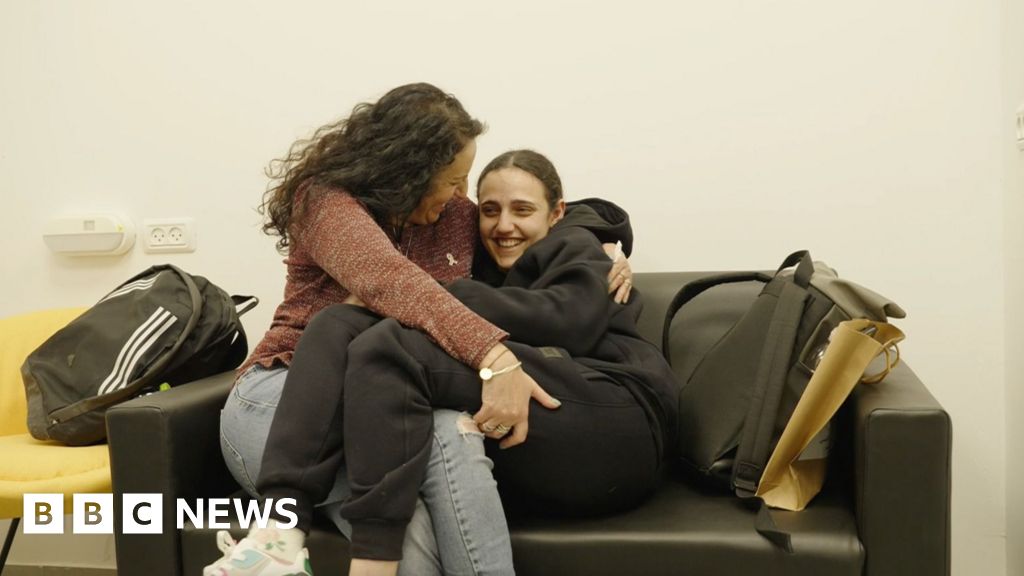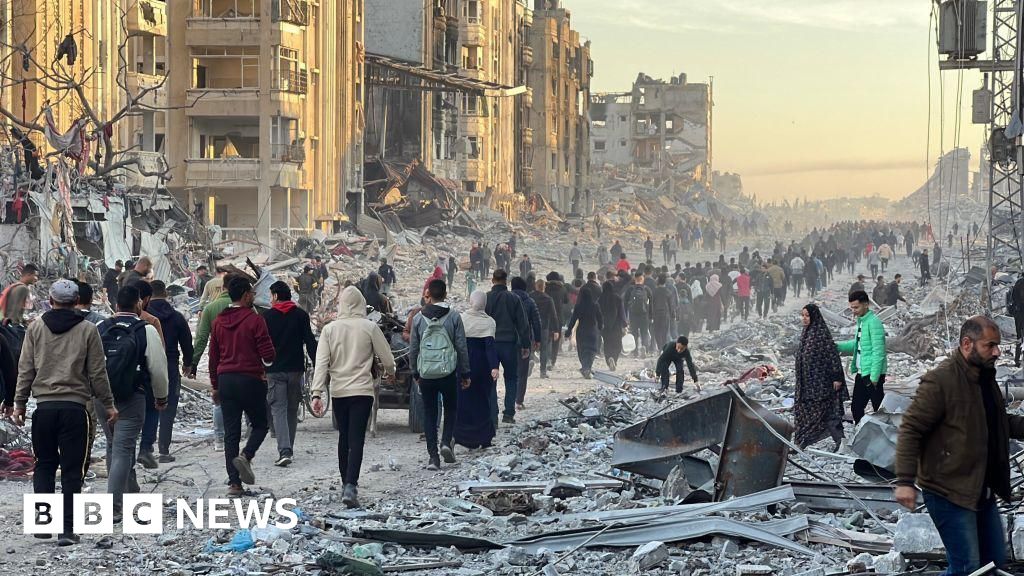ARTICLE AD BOX
20 minutes ago
By Raffi Berg & Anna Holligan, BBC News, London & The Hague
The UN's top court is set to issue a landmark opinion on the legal consequences of Israel's occupation of the Palestinian territories.
The International Court of Justice (ICJ), based at The Hague in the Netherlands, has been examining the issue since the beginning of last year, at the request of the UN General Assembly.
The court was specifically asked to give its view on Israel's policies and practices towards the Palestinians, and on the legal status of the occupation. Depending on its finding, it could mark the first time the ICJ has delivered a position on whether the 57-year occupation is illegal.
In this case, the court will issue an advisory opinion, which is not legally binding but will still carry significant political weight.
Israel occupied the West Bank, East Jerusalem and the Gaza Strip in the 1967 Middle East war. It withdrew its troops and settlers from Gaza in 2005, retaining control over its airspace, shared border and shoreline. Despite the pullout, the UN still considers Gaza as part of the occupied territories.
As the occupying power, Israel's actions in the West Bank, East Jerusalem and Gaza are subject to a detailed set of rules under international law governing occupation, designed to protect the occupied civilian population.
Before hearings started in February this year, Israel issued a statement saying it did not recognise "the legitimacy of the discussion" at the ICJ. It described the move, which was initiated by the State of Palestine at the UN, as "part of the Palestinian attempt to dictate the results of the political settlement [of the Israel-Palestinian conflict] without negotiations".
It declined to take part in the oral hearings and submitted a written statement instead. Some 52 countries presented their opinions, the vast majority asserting that the occupation was illegal and urging the ICJ to declare it as such.
The US - Israel's closest ally - called on the court "to carefully calibrate its advice" and refrain from issuing an opinion "that calls for a unilateral, immediate and unconditional withdrawal by Israel that does not account for Israel’s legitimate security needs".
For its part, the Palestinian Authority's foreign minister told the court that his people had endured "colonialism and apartheid".
"The prolonged, continuous Israeli occupation of Palestine is intended to accomplish... the complete disappearance of Palestine and the destruction of the Palestinian people," he said.
International lawyer Philippe Sands, a member of Palestinian legal team, told the BBC: "In terms of the legal outcomes, and solution that must ultimately be found, this [ICJ case] is as significant as it gets."
If the ICJ does issue an advisory opinion, it then goes to the UN General Assembly, which will decide how to respond, including the option of adopting a resolution. That would be significant and could constitute a catalyst for negotiations and set the legal parameters for a future negotiated settlement.
If the court decides that Israel's occupation is illegal, it will tell all UN bodies and nations they must do nothing to support or contribute to the current situation.
Such a ruling could potentially have far-reaching trade implications, but of greatest significance would be the consequences for the legitimacy of Israel's justification for staying in the West Bank and East Jerusalem.
Israel claims sovereignty over the whole of Jerusalem, which it considers its indivisible capital - something which is not accepted by the vast majority of the international community. It has also built about 160 settlements housing some 700,000 Jews in the West Bank and East Jerusalem. The settlements are considered illegal under international law, though Israel disputes this.
The ICJ case being heard on Friday is separate from another active case brought to the court by South Africa accusing Israel of committing genocide against the Palestinians in the war in Gaza.

 6 months ago
23
6 months ago
23








 English (US) ·
English (US) ·